“Hydrogen Baladi”: Pioneering Lebanon’s Green Hydrogen Future at #GH2HackathonLebanon
The #GH2HackathonLebanon, part of the “Green Hydrogen Camp: From Theory to Action” program established by the MED-GEM Network, funded by the European Union, brought together engineering students to tackle Lebanon’s energy challenges. Co-organised by the Lebanese Center for Energy Conservation (LCEC) and the MED-GEM Network, with support from the Ministry of Energy and Water and the EU Neighbours South program, the event tasked participants with designing a green hydrogen valley in the Beqaa region. Despite the escalating challenges in Lebanon due to the war, the MED-GEM Network has been asked to maintain the Hackathon final in a hybrid format, showcasing resilience and commitment to fostering innovation.
In Beirut, the first phase of the Hackathon began on September 17, 2024, despite the backdrop of a challenging national context. Teams of engineering students competed to design a green hydrogen valley in the Beqaa region, with two finalist teams advancing to a hybrid final on October 24. Among them was “Hydrogen Baladi,” led by Rayan Al Sarih and Omar Allahham.

From Clean Energy Aspirations to Resilience Amid Adversity
Rayan, who holds a master’s in engineering, reflected on the experience: “I’ve always been interested in clean energy and sustainability. I wanted to learn more, and that’s why I applied to the Hackathon. I saw it as an opportunity to expand my knowledge through the summer school. I approached it as an educational experience.”
Rayan and her teammate, Omar Allahham, initially envisioned exporting hydrogen to neighboring countries like Syria, Jordan, and Egypt. However, mentorship sessions provided by MED-GEM Network during the Hackathon prompted them to change course. “We realised, thanks to the experts’ advice, that it made more sense to focus on using hydrogen domestically in Lebanon first. Meeting local demand before exporting was a logical step,” Rayan explained. Their project, “Hydrogen Baladi,” aimed to revolutionise Lebanon’s industrial heating market by covering 71% of demand by 2040. The project integrates green hydrogen and waste heat recovery to support decarbonisation, economic growth, and regional energy collaboration.
“Unlike solar energy, which depends on time, weather, and requires strong storage capacities to be reliable, hydrogen can be produced on demand. That makes it much more dependable and practical.” Rayan noted.
Rayan reflected on the invaluable discussions with MED-GEM mentors and coaches, some with over 20 years of experience, who introduced new concepts and inspired innovative thinking. “We had incredible conversations with international professionals and experts. They sparked our curiosity and encouraged us to think in innovative ways.”
The final stage of the competition brought an unexpected and daunting challenge for Rayan and her team. But for them, it was just another chance to showcase the resilience of Lebanese youth. As the war in Lebanon erupted, the chaos and uncertainty could have easily derailed their efforts. Yet, they did not give up. “It wasn’t easy to stay focused,” Rayan reflected. But she and Omar channeled their determination into their work, pushing through the difficulties with unwavering resolve. They poured countless hours into perfecting every aspect of their project—technical, business, and regulatory—refusing to let adversity define their journey.

Lessons Learned and Vision Gained
The winners of the #GH2HackathonLebanon were rewarded with a study trip to Friedrich-Alexander Universität Erlangen-Nürnberg in Germany, fully funded by the European Union through MED-GEM Network. For Rayan, the experience was nothing short of transformative. It marked her first journey to a European country, an experience that filled her with excitement and curiosity. The trip was a perfect blend of lectures and hands-on lab work, but it was the time spent in the laboratory that truly captured her heart. “I actually enjoyed it so much,” she shared. The opportunity to conduct experiments and delve into the intricate process of hydrogen production brought the concepts of green hydrogen to life in a way she had never imagined. “We got the chance to do experiments, and that was really interesting,” she said, reflecting on the knowledge and inspiration she gained from the experience. It was a journey of discovery, one that deepened her passion for clean energy and expanded her horizons both academically and personally.
The Hackathon was a transformative experience for Rayan, showing the value of mentorship and collaboration in shaping her skills and confidence. “The experts guided us not only on the technical aspects but also on the business and management sides,” she shared, reflecting on the support she received. As an engineer with limited experience in business planning, she admitted to initially feeling uncertain. However, the mentorship helped her organise ideas, develop a solid business plan, and refine her presentation skills. “It added many valuable skills to my toolkit: research, presentation, pitching, and reporting,” she explained.
Reflecting on the Hackathon, Rayan emphasised the importance of initiatives targeting youth. “Initiatives like this Hackathon are so important because they target youth. This age group is eager to learn, open-minded, and full of innovative ideas. Youth have the potential to create solutions that can make a real difference at both a societal and national level.”
The young woman left the Hackathons with a sense of optimism for her country’s potential “I think there’s potential to develop this project in Lebanon to produce our own hydrogen here. I believe in this project, that we can move forward with it and not just keep it as theory.” She said excitedly.
| The MED-GEM Network, funded by the European Union, is driving the development of Green Electrons and Molecules (GEM) in the southern neighbourhood. Its mission is to build a sustainable and self-sustaining network that promotes cooperation and dialogue between key players in the energy sector. By focusing on renewable and green hydrogen, the project aims to foster the growth of the GEM industry at regional level and support a cleaner, more sustainable energy future. In 2024, MED.GEM organised Green Hydrogen Camps and Hackathons in Morocco and Lebanon, with two more planned for 2025 in Tunisia and Egypt. These events are central to raising public awareness of the urgent need for a clean energy transition in the region while empowering young innovators to contribute to this global effort. |

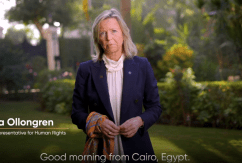
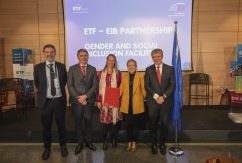
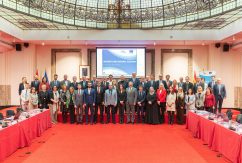




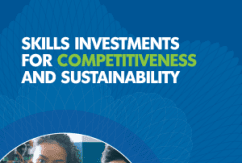

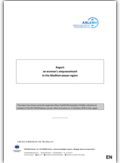
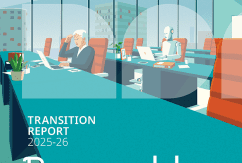



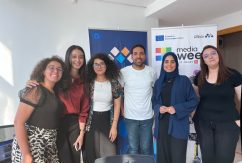












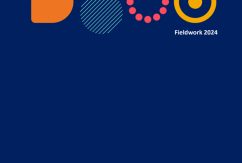
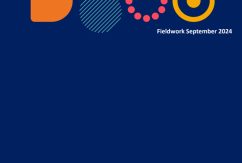
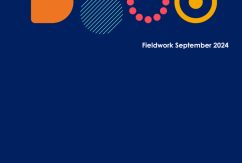
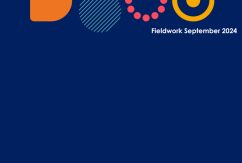

 Syria
Syria 



